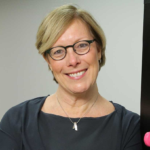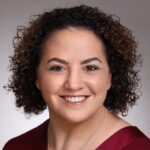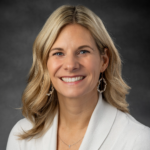The field of exercise and cancer (exercise oncology) has a long history. In 1911, findings were published documenting that being more physically active was associated with lower risk of colon cancer. Throughout the 20th century, animal model experiments repeatedly showed that exercise slowed tumor growth. In the late 1980s, Winningham and MacVicar carried out the first human clinical trials of exercise and cancer, documenting benefits on body composition and quality of life. In 1996, the first review in the field of exercise oncology was conducted by Friedenreich and Courneya, and in 2005, the first meta-analysis was published, by Schmitz et al., that identified 22 high quality randomized controlled trials. The American College of Sports Medicine® (ACSM) published the first roundtable guidelines for exercise in cancer survivors in 2010, initiating 14 years of exponential growth in the field of exercise oncology. By the time the second roundtable guidelines for exercise in cancer survivors were published in 2019, there had been a 281% increase in the number of published randomized controlled trials in this area. A current search of PubMed indicates there are over 2,600 exercise oncology randomized controlled trials in humans and over 15,000 peer-reviewed scientific publications (including animal model research and observational studies). The American Cancer Society and the American Society of Clinical Oncology both published guidelines in 2022 echoing the advice from ACSM that exercise mitigates common cancer symptoms and treatment side effects, as well as helps to prevent the development and recurrence of cancer. More research is certainly needed to better understand the mechanisms by which exercise may improve cancer-related outcomes. But how should exercise be implemented in oncology settings?
ACSM started a new disease-specific initiative in 2019 under the umbrella of Exercise Is Medicine® called Moving Through Cancer. This initiative has a bold goal of making exercise the standard of care in oncology settings by 2029. Activities to this point include policy proposals (including the submission of a National Coverage Determination application in March 2024), stakeholder awareness resources (including brochure and movie), workforce development resources (including development of the revised ACSM-ACS Cancer Exercise Specialist Course), program development (including registry of exercise oncology programs across the United States and beyond) and research and evaluation activities (including a Medicare pilot study).
One observation from many in the field of exercise oncology is that there is not an overarching organizational home for those who work in this field. A review of recent sports medicine annual meetings reveals less than 20 hours of exercise oncology-focused programming to be the norm. The small amount of exercise oncology content at such meetings does not reflect the progress in the field, the volume of work ongoing scientifically or the rise in the clinical practice of exercise oncology. There is real concern that this may constrain development of the field. Might it be time for a new scientific organization focused exclusively on exercise oncology?
A critical preconference planning meeting has been set for May 28, 2024, in advance of the ACSM annual meeting in Boston, to discuss the formation of the International Society of Exercise Oncology. The purpose of this society would be to create a central hub for the growing exercise oncology community, including exercise oncology researchers, clinicians, exercise professionals with specialty training in cancer, trainees, people living with and beyond cancer and potential sponsors. The meeting will feature panel discussions on multidisciplinary and international perspectives regarding the future of exercise oncology and audience insights and opinions will be encouraged. We welcome all to attend and be part of this critical movement in exercise oncology. ACSM annual meeting attendees can register as a supplement to the annual meeting registration.

Kathryn Schmitz, PhD, MPH, FACSM, is a professor of medicine at the University of Pittsburgh School of Medicine. She serves as associate director of population science and co-leader of the Biobehavioral Cancer Control Program for the UPMC Hillman Cancer Center. Dr. Schmitz is the founder of ACSM’s Moving Through Cancer initiative, which has a bold goal of making exercise a standard of care in the setting of oncology by 2029. She is a past president of ACSM and the recipient of the prestigious Citation Award from ACSM, the Distinguished Scientist Award from the Society of Behavioral Medicine, an honorary fellowship from the Faculty of Sport and Exercise Medicine U.K., and the American Cancer Society’s Clinical Research Professorship.

Allison Betof Warner, MD, PhD, is an assistant professor of medicine (oncology), director of the Melanoma Program, director of Solid Tumor Cellular Therapy, and Mark & Mary Stevens Endowed Scholar in Melanoma at Stanford Cancer Institute. Dr. Betof’s laboratory focuses on modulating tumor microenvironment to overcome resistance to immunotherapy. A large focus of her work is on immunomodulatory effects of exercise, and her lab utilizes preclinical models to study how exercise may enhance anti-tumor immunity. She is the principal investigator of clinical trials exploring novel treatments for immunotherapy-refractory melanoma and is internationally recognized for her expertise in brain/CNS metastasis and the use of novel cellular therapies.

Karen Wonders, PhD, FACSM, is the founder and CEO of Maple Tree Cancer Alliance and professor/program director of exercise physiology at Wright State University. Her passion is to advocate for exercise as part of the national standard of care for cancer. Her nonprofit organization (Maple Tree) provides free exercise training to thousands of cancer survivors every month at 65 clinical locations across the United States. An avid researcher, Dr. Wonders is committed to evidence-based practice in her facilities and leads a robust research program on exercise and cancer recovery. Dr. Wonders has given numerous professional presentations, including a talk at TEDxDayton on Exercising through Cancer Care.
Viewpoints presented in ACSM Bulletin commentaries reflect opinions of the authors and do not necessarily represent positions or policies of ACSM. Active Voice authors who have received financial or other considerations from a commercial entity associated with their topic must disclose such relationships at the time they accept an invitation to write for the ACSM Bulletin.




